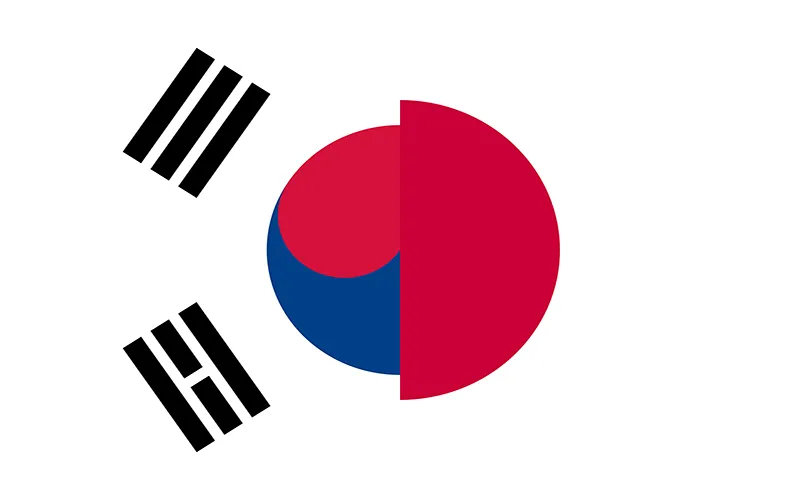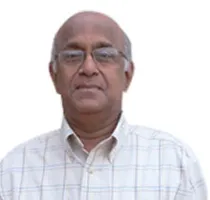-
CENTRES
Progammes & Centres
Location
The Republic of Korea will be carefully scrutinising the up-coming Abe's August statement commemorating the 70th anniversary of the end of the Second World War. Koreans expect Abe to come out with a clear statement that expresses Japan's contrition and proposes a new framework for reconciliation.

At last, the 50th anniversary of the normalisation of diplomatic relations between Japan and South Korea (ROK ) has set in motion the long delayed process of getting the two countries to move in the direction of some kind of reconciliation. Since 2012 when the then South Korean President Lee Myung bak visited the controversial Takeshima /Dokto islands, relations have started deteriorating. Many expected that bilateral engagements would be revitalised with the advent to office of Prime minister Shinzo Abe (2012) and President Park (2013). Despite their strong commitments to their security alliances with the US as well as sharing many common strategic concerns, that expectation did not materialise, and on the contrary, relations have tended to decline further. Abe and Park have not had even one formal one-on-one meeting so far and the Japan-ROK summit meetings have been in a state of suspension.
One can cite some reasons for this. First, distrust between the two countries has been growing thanks to the escalation of historical issues. In particular, the issue concerning the "comfort women" forms a major obstacle to any speedy solution to the current strained relations between the two. There are deep suspicions in South Korea that Prime Minister Abe may water down the Kono statement of 1993 in his much expected new statement in August this year. It may be recalled that Yohei Kono, the then Japan's Chief Cabinet Secretary, in his 1993 statement offered an apology to the Korean victims and clearly admitted Japanese involvement in setting up "comfort stations".
Many Koreans demand that Abe should not only reiterate the spirit of Kono's statement, but also think of making some new proposals that would recognise the dignity of the fast dwindling number of victims by providing some compensation. They expect the Japanese government to soften its position that the compensation issue had been once and for all settled in the 1965 normalisation agreement. They argue that the political situation of Korea in 1965 was totally different in that the people were not in a position at that time to express their grievances fully. Soon after, the country itself was clamped under strict martial administration which did not encourage public debates on issues like the "comfort women".
Moreover, the Korean administration was more eager to please the US which was busy in rallying its allies including Japan and South Korea in its anti-communist strategy. But in the years following ROK's democratisation and the end of cold war, the Korean people began to give vent to their views more forcefully on issues like the "comfort women" and text books, which heightened bilateral tensions. In 1998 President Kim Dae Jung and Japanese Prime Minister Keizo Obuchi in a joint statement called for a "new future oriented relationship based on reconciliation" and even agreed to co-host the 2002 FIFA World Soccer Cup tournament. Yet in 2005 the ROK government declared that the "comfort women" issue had not been resolved and since then the question has been gathering a great deal of steam to pose a major challenge to Japan.
Second, President Park's policy of maintaining close relations with Beijing has also contributed to serious divergences in their perceptions on the rise of China. It was customary for any newly elected ROK President to make an official visit to the US first and follow it up with a visit to Japan. But departing from this practice, President Park, after visiting the US in May 2013, chose to go to China in July instead of Japan. This sent a clear message to Tokyo about Park's diplomatic priorities. The return visit of President Xi Jin Ping to Seoul in July 2014, was hailed as a major event in South Korea. During his visit, Xi stated that China and Korea shared common goals in Asia like promoting regional peace and cooperation. Taking advantage of his visit, Xi also criticised Japan for its past aggression in China and Korea and tried to make a common cause with ROK on historical issues. One should note how China built a memorial in Harbin for a Korean ultra-nationalist who had assassinated a prominent Japanese Meiji leader Hirobumi Ito in 1909. More recently, China extended full support to Seoul in its dispute with Japan on the UNESCO extending heritage status to several pre-war Japanese industrial facilities. Further, unlike Japan, Korea has also joined China's Asia Infrastructure Investment Bank. All these developments generated considerable bitterness in Japan and created an impression that both Beijing and Seoul were ganging up against it in exploiting the historical issues.
New warmth
Yet the picture is not as grim or disconcerting as it looks; many well-intentioned personalities on both sides are making efforts to de-escalate the situation. The US is concerned that when the strategic situation in Northeast Asia is causing so much concern, it is essential for its allies to remain united. President Barack Obama succeeded in arranging a meeting between the two leaders at The Hague in March 2014.
In June this year, President Park herself showed an inclination to adopt a "two track strategy" keeping aside the historical issues from other subjects. Following this, the Seoul government changed its gear to take steps towards better relations. It proposed cooperation between Japanese and Korean defence establishments. One reason for this sudden change was that public opinion in South Korea was swinging in favour of better relations with Japan. Prominent Japanese and Korean leaders, including former Prime Ministers Yoshiro Mori and Yasuo Fukuda and former ROK Prime Minister Lee Hong-koo, formed a bilateral working group for mending the bilateral ties. Recent public opinion surveys held in both countries have clearly indicated trends favouring a new framework for carrying forward the bilateral ties.
On the eve of the 50th the anniversary of their diplomatic relations, Yun Byung-se, ROK's Foreign Minister visited Tokyo and had a meeting with his Japanese counterpart Fumio Kishida in a cordial atmosphere. Both agreed to work towards arranging a bilateral summit at the appropriate time. Apart from agreeing to speed up the trilateral summit including China within this year, both also agreed to cooperate in finding an amicable solution to the current dispute on the UNESCO's heritage status to the Meiji era industrial sites. The 50th anniversary also provided a great opportunity for both Park and Abe to think in terms of making a "fresh start to the bilateral relations for the next fifty years."
But the historical issues including "comfort women" will not fade away soon and the Koreans will carefully scrutinise the up-coming Abe's August statement commemorating the 70th anniversary of the end of the Second World War. They expect Abe to come out with a clear and unambiguous statement that expresses Japan's contrition and proposes a new framework for reconciliation.
(Prof K.V. Kesavan is a Distinguished Fellow at Observer Research Foundation, Delhi)
The views expressed above belong to the author(s). ORF research and analyses now available on Telegram! Click here to access our curated content — blogs, longforms and interviews.

K.V. Kesavan (1938 2021) was Visiting Distinguished Fellow at ORF. He was one of the leading Indian scholars in the field of Japanese studies. Professor ...
Read More +